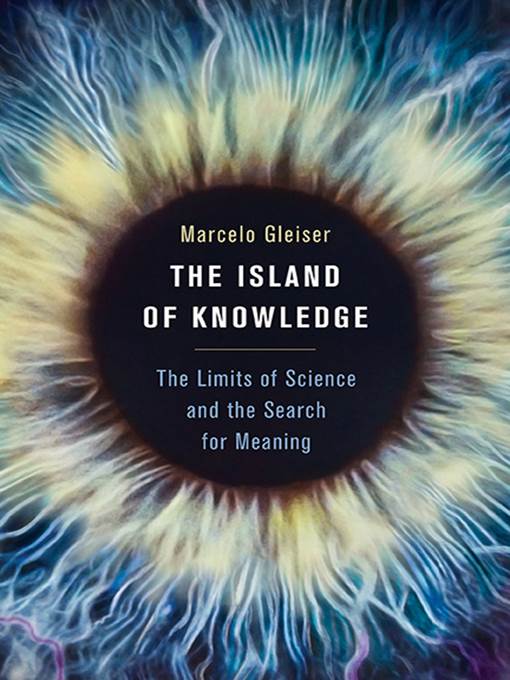
The Island of Knowledge
The Limits of Science and the Search for Meaning
کتاب های مرتبط
- اطلاعات
- نقد و بررسی
- دیدگاه کاربران
نقد و بررسی

Starred review from April 7, 2014
Humans have worked to understand and explain the universe for millennia, but Gleiser (A Tear at the Edge of Creation), Appleton professor of natural philosophy and professor of physics and astronomy at Dartmouth College, says we’ll never know it all—and proceeds to explain why. We are driven “to make sense of the world” and our place in it, and advances in mathematics and technology, from geometry and lenses to calculus and computers, have expanded our reach, revealing details of the very small and the very large. But as that “island of knowledge” grows, Gleiser says, “so do the shores of our ignorance.” From Copernicus’s proof that the Earth orbited the Sun to Isaac Newton’s laws of gravitation and motion, and quantum theory’s uncertainty principle, solutions that solved major problems also made many uncomfortable because they revealed deeper mysteries, showing “the true vastness of space and time.” Gleiser covers a broad swath of subjects—from cognition and curved space to particle physics, superstring theory, and multiverses—with a thoughtful, accessible style that balances philosophy with hard science. His island imagery will capture readers’ imagination as it examines the ideas that unnerve us even as they illuminate our world.

August 1, 2014
Gleiser (Appleton Professor of Natural Philosophy, physics and astronomy, Dartmouth Coll.; A Tear at the Edge of Creation) draws a visual analogy between humanity's body of knowledge and an island. As our learning of the universe grows, the boundaries of the island expand into the sea, but sometimes our understanding recedes, too, diminishing the landmass. This vision captures the vast unknowability, perhaps infinitude, of the confines of knowledge. Gleiser, building from this analogy, examines the limits of the discipline to reveal exhaustively objective knowledge and of scientific theory to explain our universe. New theories, such as within quantum mechanics, can reveal strangely complex and challenging ideas to our sense of reality. In conclusion, the author argues that despite science being the "best tool...for describing the world...[it] is not a reflection of a God-given truth." VERDICT Gleiser's exploration provides a thorough primer to the perplexing questions 20th-century physics raised about our comprehension of reality. This scientific education is interwoven with history and philosophy, providing a balanced and often enlightening perspective on the bounds of science. Highly recommended to those interested in theoretical physics and philosophy of science.--Scott Vieira, Sam Houston State Univ. Lib., Huntsville, TX
Copyright 2014 Library Journal, LLC Used with permission.

May 15, 2014
Gleiser (Natural Philosophy, Physics and Astronomy/Dartmouth Coll.; A Tear at the Edge of Creation: A Radical New Vision for Life in an Imperfect Universe, 2010, etc.) seeks an answer to the question, "Can we make sense of the world without belief?"The author suggests that even scientific giants like Newton and Einstein depended on "intuition and personal prejudice" to extend their knowledge, knowing full well the limitations of their theories. Scientific knowledge has advanced since their groundbreaking discoveries, but so, too, has our understanding of its inherent limitations. Gleiser contends that although we can extend our understanding of how the universe works, our efforts to penetrate reality will always include an element of unsubstantiated belief. The author traces the history of science, including Aristotle's Earth-centered model of the heavens, which was upended by Copernicus and his successors. This led to the achievements of classical physicists such as Newton and James Maxwell in understanding gravity and electromagnetism and culminated with Einstein's Theory of Relativity. Then, Gleiser tackles current cosmological theories-e.g., the Big Bang, the expanding universe and the possibilities that it is only one of infinitely many other universes. For readers unfamiliar with the material, this will be a lot to comprehend, even though the author uses descriptive metaphors to make it more accessible. Gleiser also examines the anomalies of quantum physics, such as the odd behaviors of electrons or photons that appear to be particles in some experiments and waves in others, and he gives examples of electrons that appear to communicate instantaneously, a step back to Newton that Einstein criticized "as spooky action at-a-distance." Gleiser ends with an examination of information theory.Readers may find this to be an overly ambitious attempt to provide a historical perspective to the scientific enterprise that is more confusing than illuminating.
COPYRIGHT(2014) Kirkus Reviews, ALL RIGHTS RESERVED.

























دیدگاه کاربران